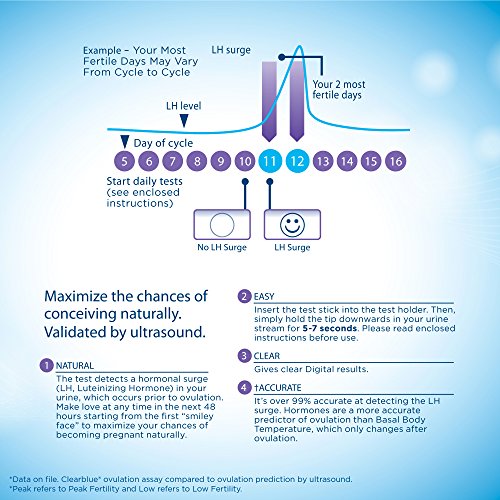How to fight paying child support
How Can I Fight Back Child Support Payment?
Trying to fight child support payment is a difficult, yet not entirely impossible process. In order to get this movement started, one must have a viable reason for which to contest the original court order. This can be hard to find, seeing as there are very few reasons that the court will accept as appropriate for overturning the original decision. However, there are a few simple steps one can take in order to get the ball rolling and find the strongest argument possible for the case.
A Good Reason
First, it is important to figure out what reason or reasons will be brought up as grounds for fighting the payments. Courts are extremely picky as to what they will and will not allow as an argument. Thus, it is imperative to choose the absolute best defense possible so that the judge is not able to dismiss the claim.
The best reason to fight child support payments is that there is no biological link between the man who has been acting as the father and the child. This can easily be proven through a paternity test; however, even with this evidence, it is not one hundred percent certain that the court will agree to stop demanding the payments. If a man has been in a child’s life for quite some time and has been serving as the father figure, in the court’s eyes he may still be considered the father, whether there is a genetic link or not. This means he will have no choice but to pay child support.
Another reason courts will possibly overturn payment is that the child is now an adult. Once the child reaches 18 years of age, in most states, it is no longer required that the father pay child support. Also, if the father has recently lost his job or suffered a large decrease in income, this may too be grounds for abolishing the payments. However, in this instance, most courts will only reduce payment rather than get rid of it completely, depending on the circumstances.
Evidence
After establishing a viable argument, it is imperative to have solid evidence to back every statement.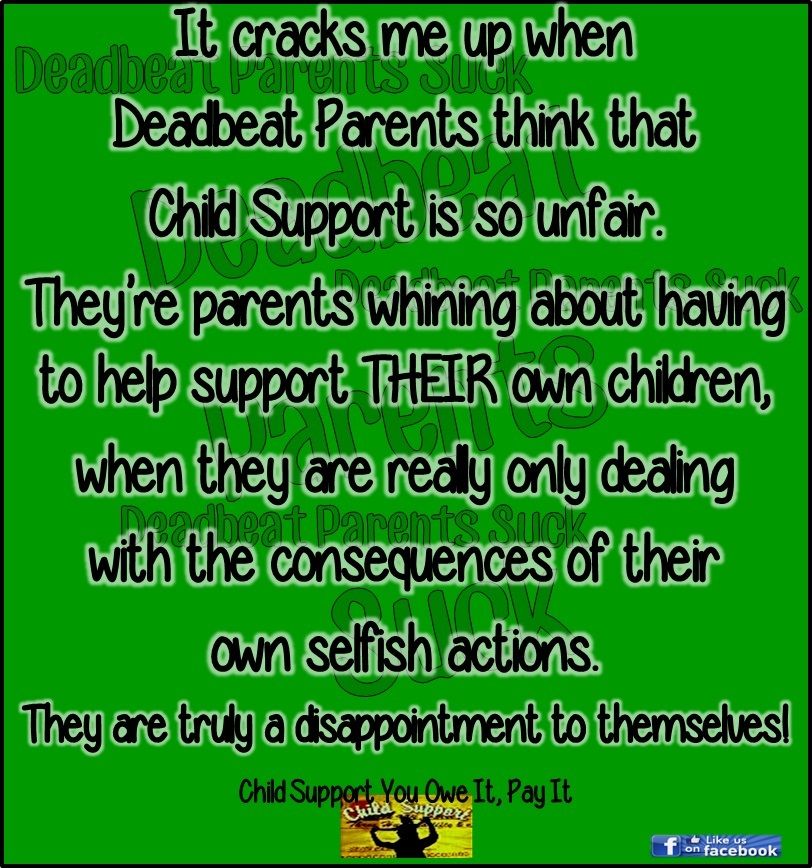 If there is documentation of any kind proving what is being said, having those documents readily available in court will make the whole process much easier and more favorable. Evidence is the main thing that will really sway a court one way or another. So, any papers, text messages, emails, DNA tests and the like are extremely helpful for winning the case.
If there is documentation of any kind proving what is being said, having those documents readily available in court will make the whole process much easier and more favorable. Evidence is the main thing that will really sway a court one way or another. So, any papers, text messages, emails, DNA tests and the like are extremely helpful for winning the case.
Find an Attorney
Looking for an attorney can be stressful and overwhelming due to the immense number of them available. Be sure to look for an attorney who specializes in the certain area for which help is being sought. In this case, one who knows all the laws and regulations surrounding child support would be of the most assistance. Make sure to consider everything involved in going to court before pursuing any further action. The next step would be to speak with the attorney and file a petition for modification of the original child support agreement. Once this has been done, the process will begin to take effect.
Be Patient
Once the claim has been filed, there is not much to do but prepare for court and be patient.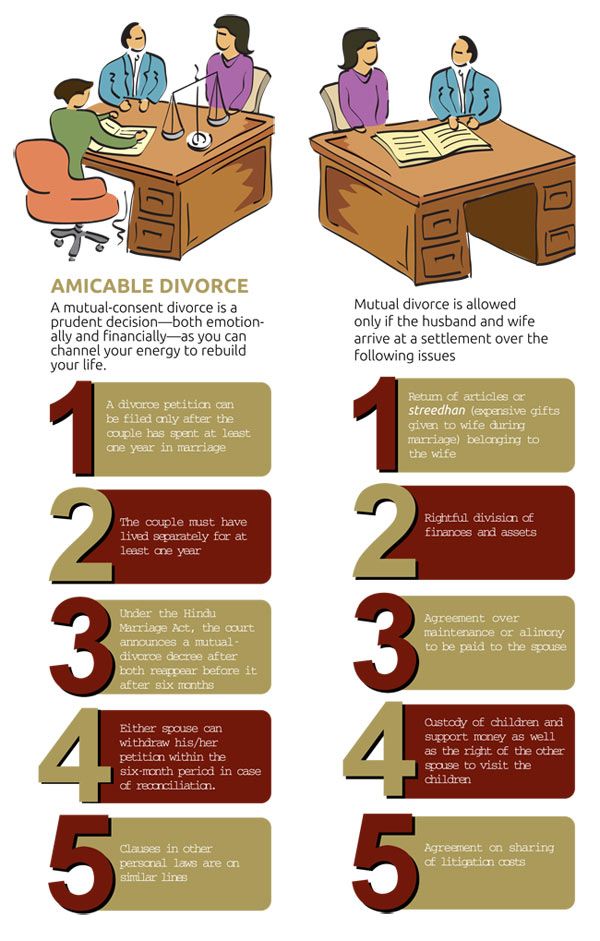 Let the attorney do all of the legal work and just make sure everything is ready to testify in court. If the outcome is not desirable, there is always the option to appeal the decision and continue the process before the appellate court. However, it is usually in the best interests of everyone to just abide by the final decision of the court, and hope that it is a fair one.
Let the attorney do all of the legal work and just make sure everything is ready to testify in court. If the outcome is not desirable, there is always the option to appeal the decision and continue the process before the appellate court. However, it is usually in the best interests of everyone to just abide by the final decision of the court, and hope that it is a fair one.
By Kenny Leigh
What To Do When You Can’t Afford Child Support Payments
Home > Family & Debt > Child Support > Child Support Payment Financial Help
If you find yourself in a situation where you can’t pay child support, you definitely are not alone.
According to the Office of Child Support Enforcement’s 2020 Preliminary Report, which includes its most recent data, just over 10 million people under a court order to pay child support, are behind in their payments, with a cumulative total of over $115 billion owed.
Not all of those cases, nor the billions of dollars owed, are because of “deadbeat dads,” the popular name given those who have the resources to pay child support but choose to ignore court orders. .
.
Many child support problems are the result of parents falling behind because of circumstances beyond their control such as a lost job, medical emergency or just not enough income to handle the financial load every month.
In cases like these, it might seem logical to reach out to the co-parent and try to make an informal agreement to resolve the problem.. And it’s true that it’s a good idea to keep all concerned parties in the loop if your financial situation has changed.
But that can’t be the only step to take! Child support payments are court-ordered for a reason and any adjustments should be made only with the agreement of the courts.
Judges weigh income, age and earning capacity in determining how much child support to award. If there is a significant change in any of those categories, judges are the ones responsible for re-setting monthly payments.
What to Do If You Can’t Pay Child Support
The first, and perhaps most important, thing to do is to get a handle on the consequences for not paying child support, and how strict the courts can be with people who don’t pay child support.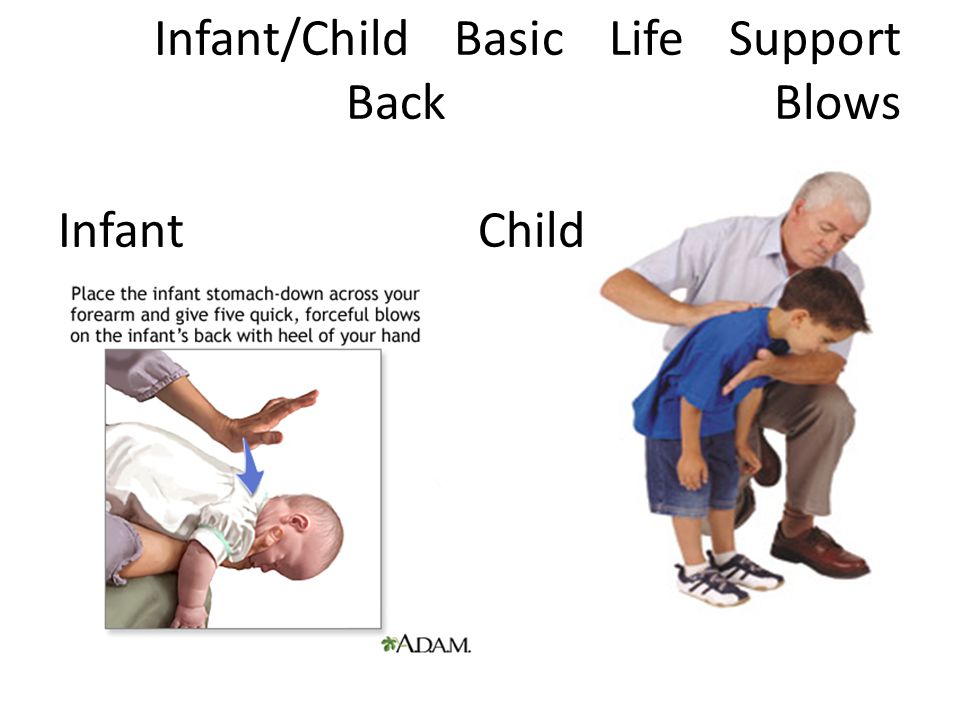 Know, in other words, what can happen to you.
Know, in other words, what can happen to you.
The Child Support Enforcement Act of 1984, as well as individual state laws, authorize the courts to collect back payments and levy a number of serious penalties (we’ll list them a little later) for the parent who isn’t keeping up.
It should motivate you to take whatever steps you can to address the situation.
And here’s something to remember: Filing for bankruptcy won’t help you. Back child support can’t be forgiven in bankruptcy.
But there are options for some relief when you are struggling financially or in arrears – the word used when you’ve fallen behind with the payments – and need help paying child support. (If you come across the word “arrearages,” it means the child support that is owed.)
It’s unlikely that any of the available options can clear child support debt completely, even when your financial situation has changed and your money troubles are at their worst. But at times like that, it’s worth doing what you can to try to make things easier.
This may seem overwhelming, but there are ways to get help. Consider asking a pro-bono Legal Advocacy Group for assistance. Contact your local United Way or other charity groups or search online for pro-bono legal services.
Each municipality typically has a Legal Aid Society center as well to offer free legal advice to residents, and many of the courts have a Legal Resource center that can provide the petition forms you need for the actual filing. While they can’t offer you legal advice, they can help you get the forms you need. Many forms are available online as well. This isn’t something that can wait.
Alternately, you can contact Child Support Enforcement in the state where your child support is owed. They can help walk you through the process and may be able to put you in touch with the legal resources you need.
Whatever course you take, the chances that you can find a way to reduce the amounts you have to pay will improve if you make an honest and genuine effort to keep the court that ordered the child support in the first place informed about your trouble with the payments. Do it sooner rather than later.
Do it sooner rather than later.
Let the Court Know
It’s vital that you notify the court that oversees your case about the difficulties in your financial situation, as soon as possible. That’s true even if you’ve made an agreement with the child’s other parent to reduce the amount you’re paying in child support.
Since only a judge can legalize a modification to the original child support order, that agreement won’t help you if the court hasn’t approved it and the other parent makes an issue of your delinquency.
When you let the court know about your financial trouble before you’ve ended up in arrears (missed a payment), your case is more likely to be heard by understanding ears. Explaining that you’ve lost your job or that you need to pay unexpected medical bills should affect the court’s willingness to set up a modified arrangement for child support if it can be structured so that the child and the other parent still get the money they need.
In any event, it’s important to let the court know about any negative changes in your financial circumstances as soon as you realize you might have trouble making payments. Without that reach-out, the court is likely to assume you are refusing to pay child support. That won’t play well.
Without that reach-out, the court is likely to assume you are refusing to pay child support. That won’t play well.
Request a Payment Schedule
If you’re sincere about improving your situation, it’s a good idea to let everyone involved in your case know you want to keep up with your child support. Perhaps the best way to do that is to request a more manageable payment schedule that lowers the amount you owe in your regular payments. That way, your child will continue to receive at least some money.
If you and the other parent can’t mutually agree on lowering your monthly obligation, a sympathetic court might help you do that. Remember: The new payment schedule won’t be legal and binding until the court approves it.
The process varies from state to state, but you’ll have to show that your financial situation has changed for the worse since the original amount of your child support payments was put in place. That likely means you’ll need to provide documents such as W-2s, medical insurance forms or unemployment records. If the parents don’t agree on the amount requested, they’ll make their cases in front of a judge before a decision is made.
If the parents don’t agree on the amount requested, they’ll make their cases in front of a judge before a decision is made.
If you are already in arrears, the local child support agency can help you figure out how much child support you currently owe and advise you about requesting a modified payment schedule.
Private Loans
One way to keep making your child support payments and avoid the consequences of missing them is to take out a private loan. If you’re already in arrears, those extra funds can be used to get caught up and to make it easier to meet future payments as you work through your financial situation.
A loan might be available to you from a bank, a credit union, online lenders or friends or relatives. In many cases, it won’t require collateral, especially if you can convince the lender that you can and will repay the debt.
Of course, that’s the rub. You’ll have to pay back the private loan, probably in monthly installments (plus interest) just like your child support obligation. In effect you’ll be substituting one expense for another – robbing Peter to pay Paul.
In effect you’ll be substituting one expense for another – robbing Peter to pay Paul.
For that reason, a private loan should be a last resort, something to turn to if no other attempt to address your difficulty with child support payments has worked.
Settle with the Guardian
You’ll have to let your co-parent (or the child’s legal guardian) know what’s going on in at least some detail because it’s going to affect his or her budget as well. The court-ordered child support your co-parent receives, goes to the care of your child. It’s important that a change in the amount you’ve been providing be managed so that your child’s needs continue to be met.
While your co-parent cannot legally waive or release you from the court-ordered child support obligation (only a judge can change the order), you might be able to work out an arrangement if you need short-term leniency.
If the issue is a larger financial hardship than making your payments for just the next few months, it will become a matter of urgency to obtain a legal modification to your court-ordered child support. Giving your co-parent a heads up is to your advantage. It might prevent the co-parent from starting legal action against you, and, since both of you will need to provide financial documentation during the review for modification process, it should speed things up.
Giving your co-parent a heads up is to your advantage. It might prevent the co-parent from starting legal action against you, and, since both of you will need to provide financial documentation during the review for modification process, it should speed things up.
In any event, you need to show a good-faith effort to both your co-parent and a judge to pay as much for the care of your child as you can, even if it’s less than the ordered amount. It can prevent larger legal trouble, and it can limit the amount you fall in arrears (and still be responsible for paying). All of this will help you in the long term.
Unemployment Benefits
If your inability to keep up with child support is due in part to the loss of a job and you haven’t found another one, filing for unemployment benefits in your state might help you start to catch up. The state will automatically deduct as much as 50% of your unemployment checks and apply it to your child support costs.
The percentage deducted varies from state to state, so it’s worth checking into how much of your monthly child support obligation can be covered though unemployment. It certainly can be a helpful way to manage your money troubles while still providing some funds for the care of your child.
It certainly can be a helpful way to manage your money troubles while still providing some funds for the care of your child.
But don’t expect your childcare payments to increase the amount of your unemployment benefits. Child support payments are expenses, while unemployment benefits are determined by what your previous income was.
Debt Relief Programs
For people in need, most states offer plans through agencies or grants that can reduce the financial strain of their child support and provide an opportunity to at least partially pay off child support debt accumulated when missed payments pile up.
For example, California’s Compromise of Arrears Program (COAP) helps people who are in arrears by allowing them to make a partial payment toward their debt and have the rest of debt they owe the government eliminated. The plan works by reducing the amount that can be paid in a lump sum or in monthly payments over three years. There is no charge for the service.
Illinois offers the Clean Slate Program, which removes the debt owed to the state once the paying parent makes six consecutive regular child support payments and agrees to continue making future payments.
In both of those cases, the debt that is eliminated is the portion of support the child has been receiving through public assistance. It’s part of the monthly child support obligation, but technically, it’s money owed to the state rather than to the co-parent.
All of these programs require the parent paying child support to meet qualification standards. Illinois asks for proof that the applicant is unemployed, was in prison or had a serious illness that prevented them from making payments, along with financial documents. California requires accurate information about all income and assets, and the program is only available to people who owe the government $5,000 or more in past-due child support.
Obviously, to get this kind of help, it’s important to be able to prove (and communicate) your financial difficulties to the agency offering it. So get prepared.
The Office of Child Support Enforcement website lists the agency in each state that has debt compromise policies available.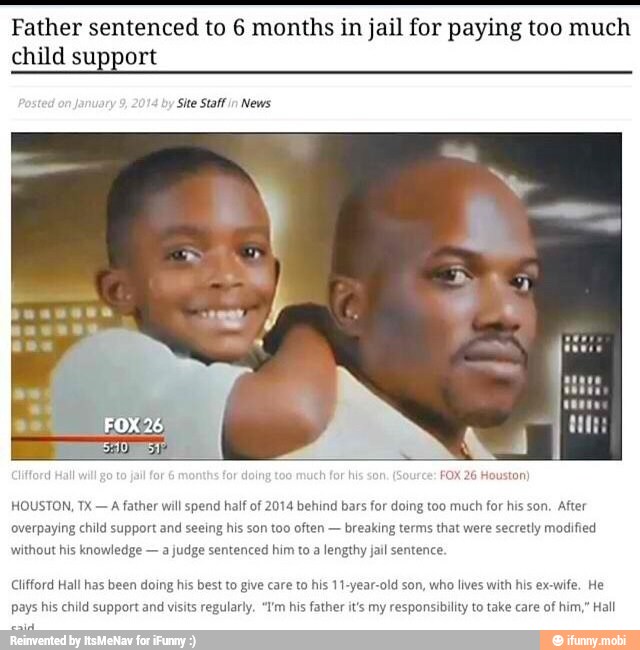
What Are the Consequences of Not Paying Child Support?
Child support is a legal obligation and an order of the court. When you fail to meet legal obligations or find yourself in contempt of a court order, the consequences are predictably unpleasant.
- You could lose your driver’s license. All 50 states have legislation that will result in the suspension of your driver’s license. Some states even extend the suspension to professional and occupational licensing as well as hunting and fishing licensing.
- Your pay can be garnished. A court can order your earnings to be withheld by your employer and used as payment for your child support debt. The garnishment will either be the entire court-ordered amount or up to 65% of what is determined to be your disposable income amount (whichever is less).
- Your tax return can be seized. This is usually done in conjunction with pay garnishment.
- Your application for a passport can be denied.
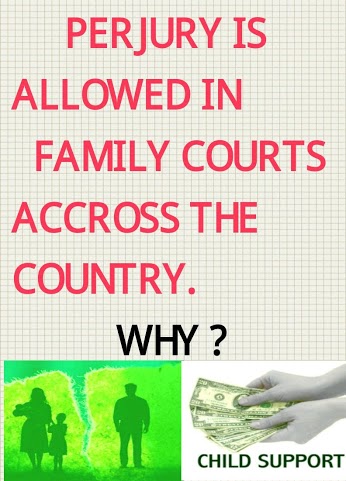
- Property Liens. This means that if you intend to sell land, homes, or vehicles, liens (claims or legal rights against assets typically used as collateral to satisfy a debt) against them will have to be paid before closing for the title to be cleared and the sale to be final.
- Your credit can take a dive. Child support enforcement agencies are free to provide information to credit bureaus about any parent with a legitimate child support obligation. That means your credit score is in for a dive.
- Jail time. Every court has an option for incarcerating those found in “contempt of court.” Child support is a court order, and sometimes a judge may order the defendant, or obligor in the case of child support, to be jailed for willful nonpayment.
- Felony Charges. If you fall more than $10,000 behind, it could mean a felony if you haven’t made attempts to pay. At that point, the state may decide to file felony charges and offenders could face fines and sentencing of up to two years in prison
There is a shame element, too, that some states employ by identifying ‘deadbeat’ parents who aren’t paying their child support obligations. Their photos, names and delinquent amounts are posted online for all to see.
Their photos, names and delinquent amounts are posted online for all to see.
How to Stop Paying Child Support Legally
There is a legal process for stopping child support payments, but it isn’t easy. Courts operate under the theory that a child’s best interest is served when they receive predictable financial payments. Convincing a judge otherwise requires documented evidence that your economic situation has changed, along with a good argument that you need some help, even if it’s just temporary.
You or your lawyer will have to go to the courthouse and file the necessary paperwork seeking a modification. This usually is a simple fill-in-the-blanks sheet. If you’re doing this yourself, you might be able to ask if the court has staff members who can assist with the filing process. However, because family law is tricky, it usually is in your best interest to have a lawyer representing you. If you can’t afford one, visit the local Legal Aid Society and ask for help.
Once your case is filed and you have a court date set to hear your petition for modifying child support payments, you must notify your co-parent of those specifics. At the hearing, you will present your case for stopping child support payments, or at least modifying them to an affordable level.
At the hearing, you will present your case for stopping child support payments, or at least modifying them to an affordable level.
When you go to court to ask for relief, be sure to have documented evidence that demonstrates why you are unable to afford your monthly obligation. That should include termination papers if you lost a job; paycheck stubs if your pay has been cut; medical receipts if your health has changed; proof of increased expenses because of other bills you owe; and anything else you can put your hands on to show you are in trouble, not running from trouble.
You should be aware that a 2016 update to the Child Support Enforcement Offices regulations requires that there be a “substantial change in circumstances” to modify child support.
However, during the last year or so, courts have been more lenient in granting temporary child support relief to people who can demonstrate they’ve lost their jobs or part of their income because of the COVID-19 pandemic.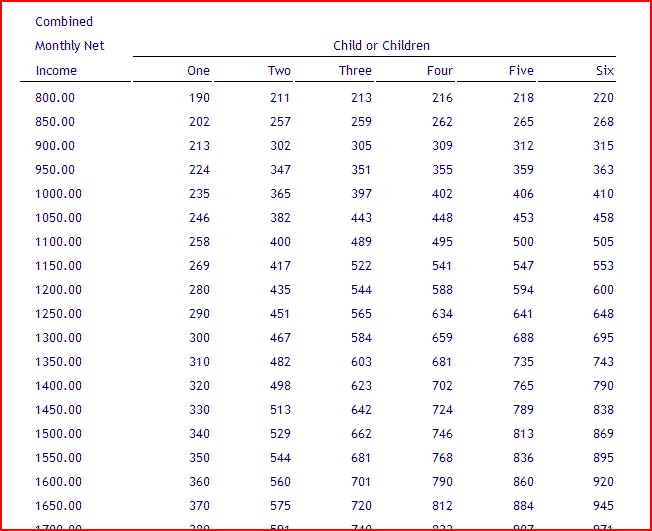 Even pre-pandemic, some states allowed adjustments to what you owe in child support based on your current income if the amount of the original payments was calculated when you had a higher salary.
Even pre-pandemic, some states allowed adjustments to what you owe in child support based on your current income if the amount of the original payments was calculated when you had a higher salary.
Still, any attempt to ignore your obligation to pay is viewed unfavorably by courts. It could result in the custodian parent filing a contempt action that would be extremely costly. You would be liable for more court costs and lawyer’s fees to re-settle your case.
The good news is that there are programs to help pay child support and get yourself back on track. There’s one thing you can do that will surely not help, however, and that is to do nothing.
So, what can you do?
Financial Assistance & Programs to Help Fathers Pay Child Support
Studies show that fathers recognize their obligations to financially support their children. But two circumstances – lack of stable employment and incarceration – often make it difficult for them to fulfill that obligation.
Fathers make up 80% of the 12.6 million noncustodial parents in the U.S., according to the U.S. Census Bureau study released in May 2020. A 2016 study for the Department of Health and Human Services showed that almost three-fourths of fathers with child support payments under the national median of $364 per month, were unemployed or in part-time or temporary jobs.
Another 400,000 are in jail and have child support cases ahead of them, according to the National Conference of State Legislatures.
So, creating job opportunities and training fathers how to advance in the workplace became a focus for government-sponsored programs run by the Office of Child Support Enforcement. The federal government funds 91 such programs in 30 states plus the District of Columbia. Not all the programs are statewide.
Some of the larger funded programs include the Office of Head Start; the Father Engagement Birth To Five; and the Strong Families Initiative.
The Father Engagement Birth To Five program was born out of the Head Start program.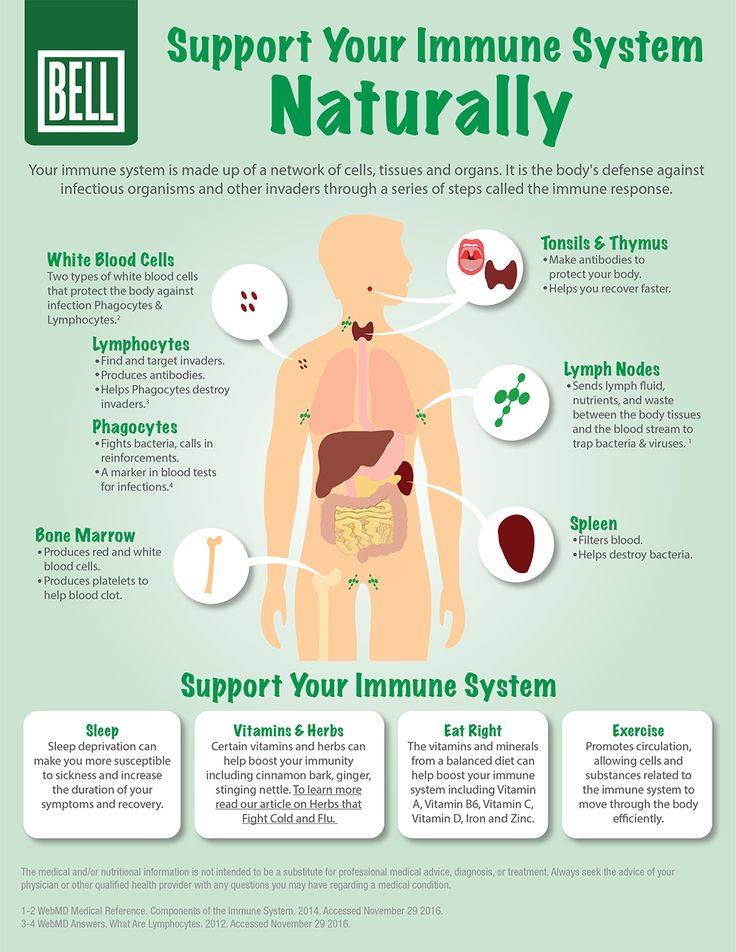 It attempts to get (and keep) fathers engaged in their child’s development at an early age.
It attempts to get (and keep) fathers engaged in their child’s development at an early age.
The Strong Families Initiative in the Department of Housing and Urban Development (HUD) seeks similar results, but focuses on families in public housing and multi-family housing projects. Built around health, education and economic empowerment, family-friendly events are staged in those neighborhoods to promote economic opportunity and self-sufficiency for residents.
These programs help connect low-income, noncustodial parents to new career paths with increased wages and, thus, the ability to provide more support for their children. Getting noncustodial parents connected with jobs is a key to regular support payments.
What to Do When You’re Already Behind on Child Support
Contact the Office of Child Support Enforcement in your state to let them know you’re working on a getting a hearing review of your current child support amount, and that you’re actively working on resolving the issue.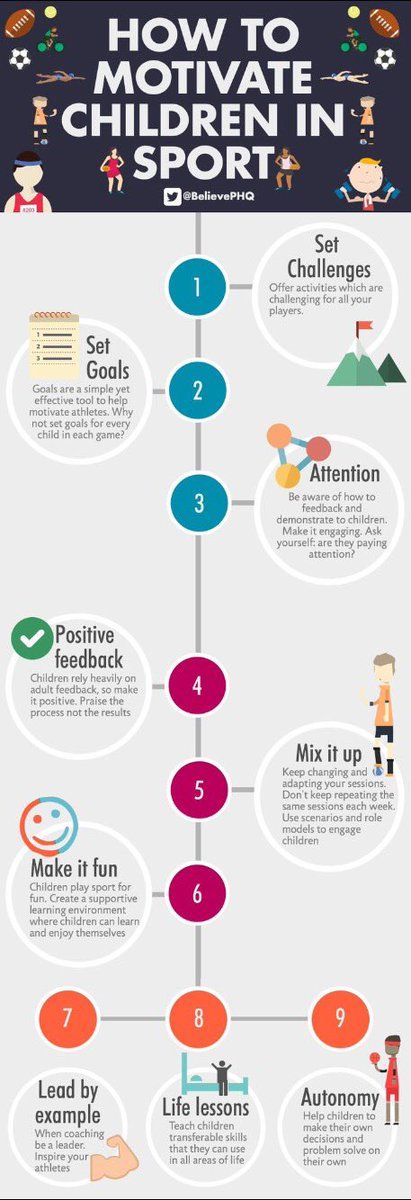
Once you have a new child support amount, contact them again and discuss a payment plan and options to help you deal with your back child support. Some states will offer to waive the interest on back child support or will negotiate a debt settlement after a year of consistent payment of your current court-ordered child support. If you’re proactive, there are options available to lessen the burden and help you pay down the debt. Ultimately, that’s the outcome they’d like to see, just like any other creditor.
Most people behind on child support are behind in relatively small amounts. Only 20% of those in arrears owe more than $20,000, but that group represents nearly 65% of the unpaid child support obligation. Data suggests that this usually happens when the parent is incarcerated, because the obligation to pay child support doesn’t stop even when the ability to earn an income does. That’s an issue that’s been at the center of attempted reform for years.
It does take time and patience, just like dealing with any other debt, but it can be done.
Find Another Source of Income
Two things anyone can do to help themselves out of financial stress is to find a second source of income and/or reduce spending in every category in their budget.
The list of opportunities for a second job is enlist. You can be a waiter, delivery person, a tutor, a coach, or a freelancer in many fields. Start a bank account where any money made on the side goes and use that to make child support payments.
The added benefit of a second job is that you have less time to spend money on things like dining out; paying for entertainment or clothes shopping. Try a few more expense-cutting steps like getting a roommate to share rent/utilities/food expenses; using public transportation or walking instead of using a car.
These might feel like drastic steps, but there aren’t nearly as penalizing as defaulting on child support payments.
If alimony debts have accumulated...
Veronika Salnikova
Lawyer, partner of Yakovlev & Partners
June 16, 2021
Tips
Pay attention to the date of publication of the material: the information may be outdated due to changes in legislation or law enforcement practice.
How to collect them, what threatens the parent-debtor and in what case will he be released from liability?
Through which court to collect alimony from a father with many children? nine0017
“In 2018, the Magistrate's Court ruled to collect alimony from her husband for the maintenance of two minor children. In 2020, we had twins. Currently, the marriage is not dissolved. Tell me where to apply (to the world or district court) and how to file an application to collect alimony for twins?
Alimony (funds for the maintenance of minor children) can be collected through the court in the order of writ or action proceedings. Writ proceedings are a simplified procedure for collecting alimony in the Magistrate's Court. When filing an application, the court issues a court order without summoning the plaintiff and the defendant. Claim proceedings are carried out in the district court with the summons of the parties. nine0003
As a general rule, if the parent-debtor already pays child support, then they should be collected on other children through the district court. The mother of twins needs to apply to the district court at her place of residence or the defendant.
The mother of twins needs to apply to the district court at her place of residence or the defendant.
You can file a claim with an attorney. In addition, sample applications are often placed in courts. You can use this sample, detailing your situation and attaching supporting documents.
nine0019 (Answers to other questions of alimony recipients and their payers can be found in the articles "On child support - in detail", "On the payment of alimony - on real examples", "Cross-border alimony").
What threatens a parent for non-payment of alimony?
For late payment or non-payment of alimony in full, the debtor parent may be held liable - administrative (Article 5.35.1 of the Code of Administrative Offenses of the Russian Federation) or criminal (Article 157 of the Criminal Code of the Russian Federation). nine0003
Bailiffs bring to administrative responsibility negligent parents. This is possible in the event of non-payment without good reason of funds for the maintenance of children according to a judicial act, a court order or an agreement on the payment of alimony. The court already attracts criminal liability for malicious evasion from the fulfillment of maintenance obligations of parents.
The court already attracts criminal liability for malicious evasion from the fulfillment of maintenance obligations of parents.
On April 27, 2021, the Plenum of the Supreme Court of the Russian Federation approved a resolution stating that “violation of a judicial act or agreement on the payment of alimony should be understood as non-payment of alimony in the amount, on time and in the manner established by this decision or agreement.” Partial payment of alimony cannot exclude the application of liability measures (read about this also in the news “The Plenum of the Supreme Court clarified the nuances of administrative responsibility for non-payment of alimony”) .
In which case will the debtor parent be released from liability despite the child support debt?
If the parent-debtor has good reasons for which he cannot pay child support in the prescribed amount, he has the right to go to court and ask to change the procedure for collection. In the presence of such reasons, the debtor may be released from liability. nine0003
nine0003
Valid reasons may be recognized such circumstances in which non-payment of alimony occurred regardless of the will of their payer: his illness (incapacity for work), his military service on conscription, force majeure circumstances, the fault of other persons, for example, non-payment of wages by the employer, delay or incorrect transfer bank of funds to the recipient of alimony.
The list of reasons that may be recognized as valid for exemption from liability is not exhaustive. In all cases, the judge must assess whether specific circumstances can be attributed to the number of good reasons for non-payment of alimony. nine0003
How do bailiffs force persistent non-payers to fulfill maintenance obligations?
If the parent does not just evade the payment of alimony, but hides and prevents their collection, i.e. becomes a malicious defaulter, the bailiffs start the procedure for searching for the debtor. But they can do this only if there is a statement from the alimony claimant. During the search, bailiffs try to locate the debtor and his property in order to bring him to justice and force him to fulfill maintenance obligations. How do they do it? nine0003
During the search, bailiffs try to locate the debtor and his property in order to bring him to justice and force him to fulfill maintenance obligations. How do they do it? nine0003
Bailiffs are endowed with special powers. They have the right:
- receive personal data from the internal affairs authorities, tax authorities, the Pension Fund, registry offices, traffic police;
- check information through the customs authorities;
- check in banks information about accounts, deposits, securities;
- to interview relatives, friends, colleagues - everyone who has information about the non-payer; nine0058
- to carry out a visit to the location of the debtor's property for its examination and evaluation;
- use information obtained through the involvement of a private detective bureau or from open sources, including those posted on personal pages on social networks.
When conducting search and search activities, the bailiff interacts with employees of other units of the FSSP, the traffic police, and the police to use the information they have.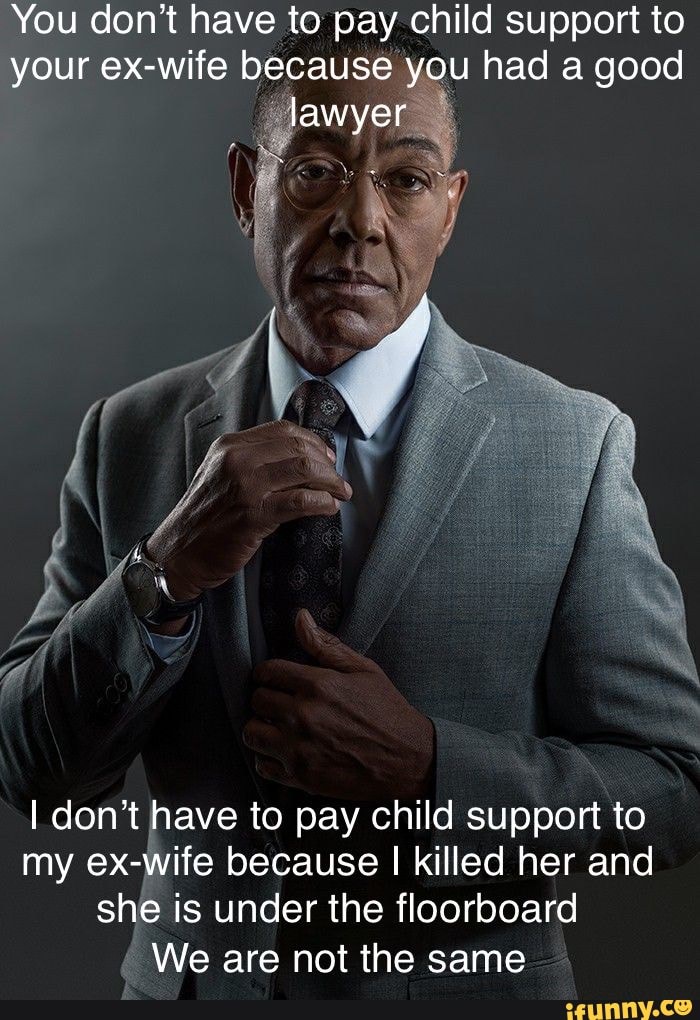 If the debtor is found outside the territory that belongs to the department that accepted the application of the alimony collector, the bailiff in charge of the case is obliged to transfer it to a colleague whose jurisdiction allows further search and search work to be continued. nine0003
If the debtor is found outside the territory that belongs to the department that accepted the application of the alimony collector, the bailiff in charge of the case is obliged to transfer it to a colleague whose jurisdiction allows further search and search work to be continued. nine0003
How to get child support from a mobilized person, October 2022 | 74.ru
All newsIt's not a sore throat: five non-obvious causes of sore throat
Do you recognize Irina Shayk and Alexander Robak? What South Ural stars looked like in childhood
Developers in Sochi have found a gold mine. What the city, which once had the title of All-Russian health resort, is being turned into
A frequently prescribed drug for cancer patients disappeared from Chelyabinsk pharmacies
In Chelyabinsk, a detained driver jumped out of a traffic police car on the move
The Ministry of Defense for the first time published footage with Putin at the headquarters of the special operation: news from the NWO for December 17
The police detained a blogger who organized mass terror in Chelyabinsk establishments.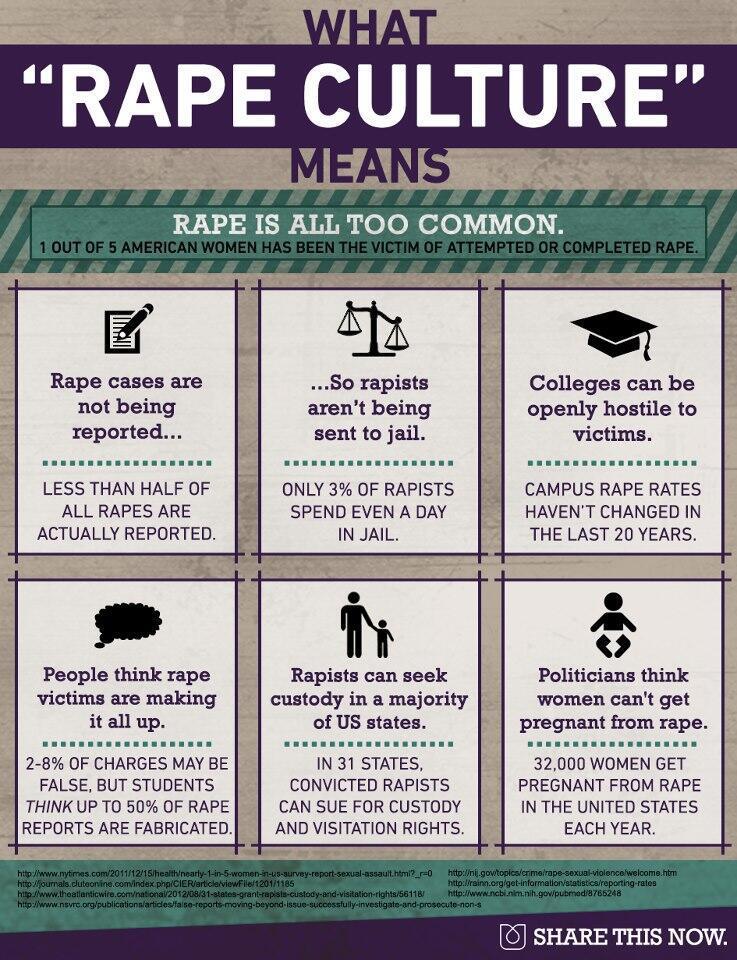 Video
Video
“I don’t want to return to that body”: what a girl looks like after she has lost 200 kilos (before and after photos)
General Skokov responded to complaints from the owners of Chelyabinsk establishments who are terrorized by a blogger
Lost and blooming: Kabaeva appeared at the opening Gymnastics Academy - The media noted that she has changed a lot
The teacher threw a party for the kids with alcohol and condoms - a video from the ransacked apartment
New Year's dress for three million: showing the most expensive holiday outfits
A video about increasing the length of military service is circulating on the Web. It's true? We called the author of the application
The Ministry of Health named four signs that indicate the worsening of SARS
“It turned out that she met both of us.” The story of a guy whose first relationship turned into hell0003
“I left on my own feet, and now I’ll take two corpses”: a pregnant woman and her child died in a Chelyabinsk hospital
You’ll break your head: 10 logical problems that you can’t cope with
What about garlic? The doctors explained what would happen if you eat lemons and garlic every day
Sexuality or modesty? How South Ural Miss MAXIM participants look like in everyday life
In Chelyabinsk, 15 apartment buildings were left without heating
“Heavy luxury is in the past”: why Russians are left without mink coats and are offered to wear green ones made of eco-fur
Two Yuzhnouralsk factories and a State Duma deputy were sanctioned by the European Union
“Neither the National Guard nor the police will say a word, don!”: a blogger staged a mass terror of Chelyabinsk establishments
Will telecommuting be banned? How those who went abroad will be able to work
“You will throw them away later!”: why Christmas markets in Chelyabinsk have become scarce, but prices have risen
Window to Europe: now how to buy a new iPhone and Nike sneakers through parallel imports
If there is ice under your feet: how to survive in a slippery city
"Naughty" deficit. Popular foreign cars have run out in Russia
Popular foreign cars have run out in Russia
The Central Bank spoke about the shortage of labor in Russia due to mobilization: news about the SVO for December 16
“All the trees have blown away”: unidentified flying objects crashed in the Volgograd region
“The sounds were very scary”: all that is known about the fall of unidentified flying objects near Volgograd
Snowfalls are expected in the Southern Urals at the weekend. Road workers asked drivers to stop long trips0003
“Two children flew into a lamppost”: parents of toddlers complained about a hill near the administration
Minus 20 cm without diets and sports: a model revealed the secret of how to quickly get rid of a protruding belly — watch the cutest video of this year
Bastrykin demanded to report to him the circumstances of the killer's attack on the convoy in the South Urals court
Chelyabinsk citizens were alerted by sounds similar to an explosion. They were heard in different parts of the city
In Chelyabinsk, several cars were spray-painted at night.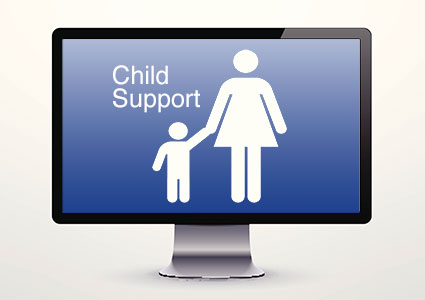 The suspect was caught on video
The suspect was caught on video
A boy singing in the parks of Magnitogorsk got on the show "Voice.Children"
All news
Partial mobilization does not relieve fathers from the obligation to support their children, but there is a deferral option
Photo: Artem Lents / NGS24 .RU
Share
After the announcement of partial mobilization in Russia, the problem of non-payment of alimony became more acute. Now the military has the right to apply to the bailiffs with a statement on the suspension of enforcement proceedings, respectively, for the duration of the service, all transfers can be paused. But even if such a statement is not written, it is now difficult for women to get money from the places of service of ex-husbands. We discuss different situations with a lawyer. nine0161
Photo: Elena Latypova / NGS55.RU
Share
The source of income has changed for those mobilized and simply sent to serve under a contract, and for those to whom they pay alimony, this has become a problem. Irina, a resident of Tyumen, shared her story. Her ex-husband, a pensioner from the Ministry of Internal Affairs, signed a contract with the Ministry of Defense on June 30.
— I received alimony from my pension, and now I received a notification that he was reinstated in the service. The Ministry of Internal Affairs now does not pay me alimony, and I also do not receive anything from the income that he now receives in the service, ”says Irina. - She came to the bailiff, she said: "I don't know what to do with you." I went to the military registration and enlistment office, they say that they don’t send any documents anywhere, this is not their duty. In Yelan, where he was sent for training, they gave him the number of the unified settlement center of the Ministry of Defense of the Russian Federation, they say: “We will accrue [alimony] only if the original documents are sent to us by mail. ” And no one gives me the original documents as an ordinary citizen. It turns out that I have been fighting for a month and I can’t get anything - a vicious circle, you don’t know which doors to knock on. nine0161
” And no one gives me the original documents as an ordinary citizen. It turns out that I have been fighting for a month and I can’t get anything - a vicious circle, you don’t know which doors to knock on. nine0161
According to Irina Zaitseva, senior lawyer at Filatov & Partners law firm, the procedure for collecting alimony from mobilized persons remains the same as it was before the announcement of partial mobilization, in accordance with the Family Code of the Russian Federation. If the debtor is in the service, there are several options for transferring alimony. When this is done voluntarily, the soldier can send money himself, but with this option there may be some difficulties, for example, there may be no connection and the ability to connect to a mobile bank. The second option is to issue transfers through the employer. nine0161
- In this case, the debtor refers the writ of execution to the employer, and all payments are made through a single settlement center of the Ministry of Defense, - explains the specialist.
Photo: Ekaterina Tychinina
Share
In cases where alimony has to be collected through the FSSP, the lawyer advises contacting the bailiff and insisting that he find the debtor and establish his new place of work (service).
“A woman herself cannot request data from the military registration and enlistment office, but this can be done by a bailiff, he has broad powers, they can request a lot, get it, you just need to make an effort,” says Irina Zaitseva. - If there is no action on the part of the bailiff, you can write a complaint about inaction to the head of the district department of the FSSP or go to court with an administrative claim and recognize the inaction of the bailiff as illegal. nine0161
The delays that are happening now, the lawyer connects with a large number of bailiffs mobilized and insufficient experience in the current conditions. Maybe things will settle down in the near future.
Photo: Elena Latypova / NGS55.RU
Share
However, those who receive alimony by court order may already face a new problem. Recently, enforcement proceedings against military personnel can be suspended at their request - including alimony. To do this, it is enough for the debtor to fill out an application at the military registration and enlistment office, at the department of the Federal Bailiff Service or through the State Services. Moreover, even close relatives of the debtor can now submit such an application. nine0161
— Suspension of enforcement proceedings against military personnel is of a declarative nature, that is, a citizen, in accordance with Part 2 of Article 40 of the Federal Law “On Enforcement Proceedings,” has the right to apply for a temporary suspension of enforcement proceedings in connection with military service, — commented in the management of the Federal bailiff service in the Chelyabinsk region. - Enforcement proceedings are suspended until the circumstances that served as the basis for its suspension are eliminated, and until it is resumed, the application of enforcement measures is not allowed. nine0003
- Enforcement proceedings are suspended until the circumstances that served as the basis for its suspension are eliminated, and until it is resumed, the application of enforcement measures is not allowed. nine0003
This message pops up on the website of the Office of the Federal Bailiff Service for the Chelyabinsk Region
Photo: R74.fssp.gov.ru
Share
will write off payments, charge him penalties and fines. But this does not relieve the parent of the obligation to pay alimony - the debt will still accumulate, and after the end of the service, when the enforcement proceedings are resumed, it will have to be paid off. nine0161
In the event of the death of the debtor, the debts will have to be collected from the heirs.
news from the story
Subscribe to important news about the special operation in Ukraine
— If a person dies, enforcement proceedings are terminated due to the death of the debtor, but do not forget that debts are also inherited, — reminds the lawyer.





